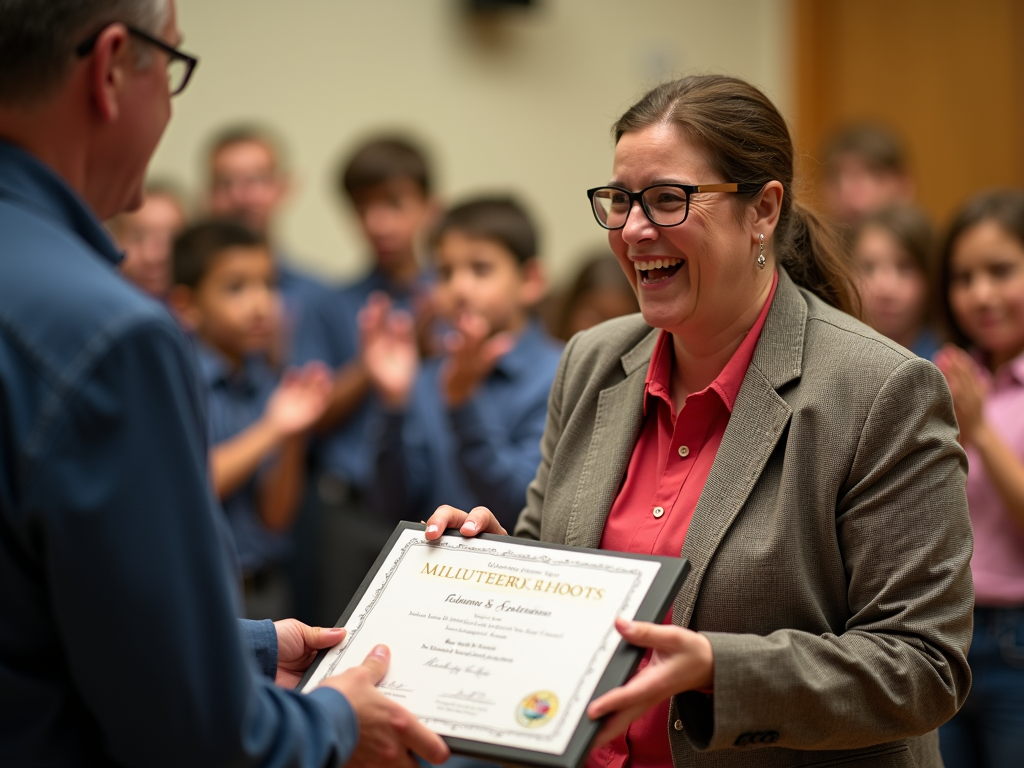The Benefits of Volunteer Work in Schools
By , May 7, 2025
Volunteer work in schools is a win-win situation. It benefits the volunteers, the students, the school, and the community at large. By giving their time and skills, volunteers can make a real difference in the lives of others while also enriching their own lives.
Volunteering in schools isn't just about helping others; it's also a great way for volunteers to grow personally. When you volunteer, you often get to use your skills in new ways or even learn new skills altogether. For example, if you're good at math, you might help tutor students who are struggling with the subject. This not only reinforces your own knowledge but also teaches you how to explain complex concepts in simple terms—a valuable skill in itself.
Moreover, volunteering can give you a sense of purpose and fulfillment. Knowing that you're making a positive impact on someone's life can be incredibly rewarding. It can boost your confidence and self-esteem, especially when you see the progress your efforts are making.
Let me share a personal anecdote. When I was in college, I volunteered at a local elementary school, helping with their after-school program. I was assigned to assist with arts and crafts activities. At first, I was nervous because I'm not particularly artistic. But as I worked with the kids, I found that my enthusiasm and willingness to try new things inspired them. We ended up creating some amazing projects together, and I learned that I had a knack for encouraging creativity in others. This experience not only boosted my confidence but also led me to pursue a career in education.

Students are perhaps the biggest beneficiaries of volunteer work in schools. Volunteers can provide additional support that teachers might not have the time or resources to offer. For instance, volunteers can help with one-on-one tutoring, assist with special projects, or even share their professional expertise through guest lectures or workshops.
This exposure to diverse perspectives and skills can be incredibly enriching for students. It broadens their horizons and shows them the practical applications of what they're learning in the classroom. For example, a volunteer who works as an engineer might demonstrate how math and science are used in real-world projects, making these subjects more relevant and exciting for students.
Furthermore, volunteers can serve as role models and mentors. They can inspire students to pursue their passions, set goals, and believe in their potential. This is especially important for students who might not have strong support systems at home.
Consider the story of a high school student named Maria. She was struggling with her grades and lacked motivation. Then, a volunteer mentor started working with her, helping her with homework and encouraging her to join the school's robotics club. Through this mentorship, Maria discovered a passion for engineering and went on to win a scholarship to study at a prestigious university. The volunteer's guidance changed the course of her life.

Volunteer work can significantly enhance the sense of community within a school. When parents, community members, and even students volunteer, it fosters a collaborative environment where everyone feels invested in the school's success.
Volunteers can help with a variety of tasks, from organizing events to maintaining school facilities. This not only lightens the load for school staff but also allows the school to offer more programs and activities than it could otherwise afford.
For example, many schools rely on volunteers to run extracurricular clubs, sports teams, or arts programs. These activities are crucial for students' holistic development, providing opportunities for them to explore their interests and develop new skills.
Moreover, volunteer involvement can create a positive feedback loop. When people see the impact of their contributions, they're more likely to continue volunteering and encourage others to do the same. This strengthens the school's community and creates a culture of giving back.

The benefits of volunteer work in schools extend beyond the school walls. Schools are often at the heart of their communities, and volunteer initiatives can help bridge gaps and address local needs.
For instance, schools might partner with local businesses or organizations to provide volunteer opportunities that benefit both students and the community. A school garden project, for example, could involve volunteers teaching students about sustainability while also providing fresh produce to local food banks.
Additionally, school-based volunteering can promote civic engagement and social responsibility. When students see adults giving their time to help others, they're more likely to develop a sense of empathy and a desire to contribute to their communities.
Consider a program where high school students volunteer to tutor younger children in reading. Not only does this help the younger students improve their literacy skills, but it also instills a sense of responsibility and leadership in the older students. This kind of intergenerational volunteering can have a profound impact on the community as a whole.

Volunteer work in schools is a powerful way to create positive change. It benefits volunteers by fostering personal growth, helps students by providing additional support and inspiration, strengthens the school community, and has a ripple effect on the wider community. By getting involved, you can make a real difference while also enriching your own life.